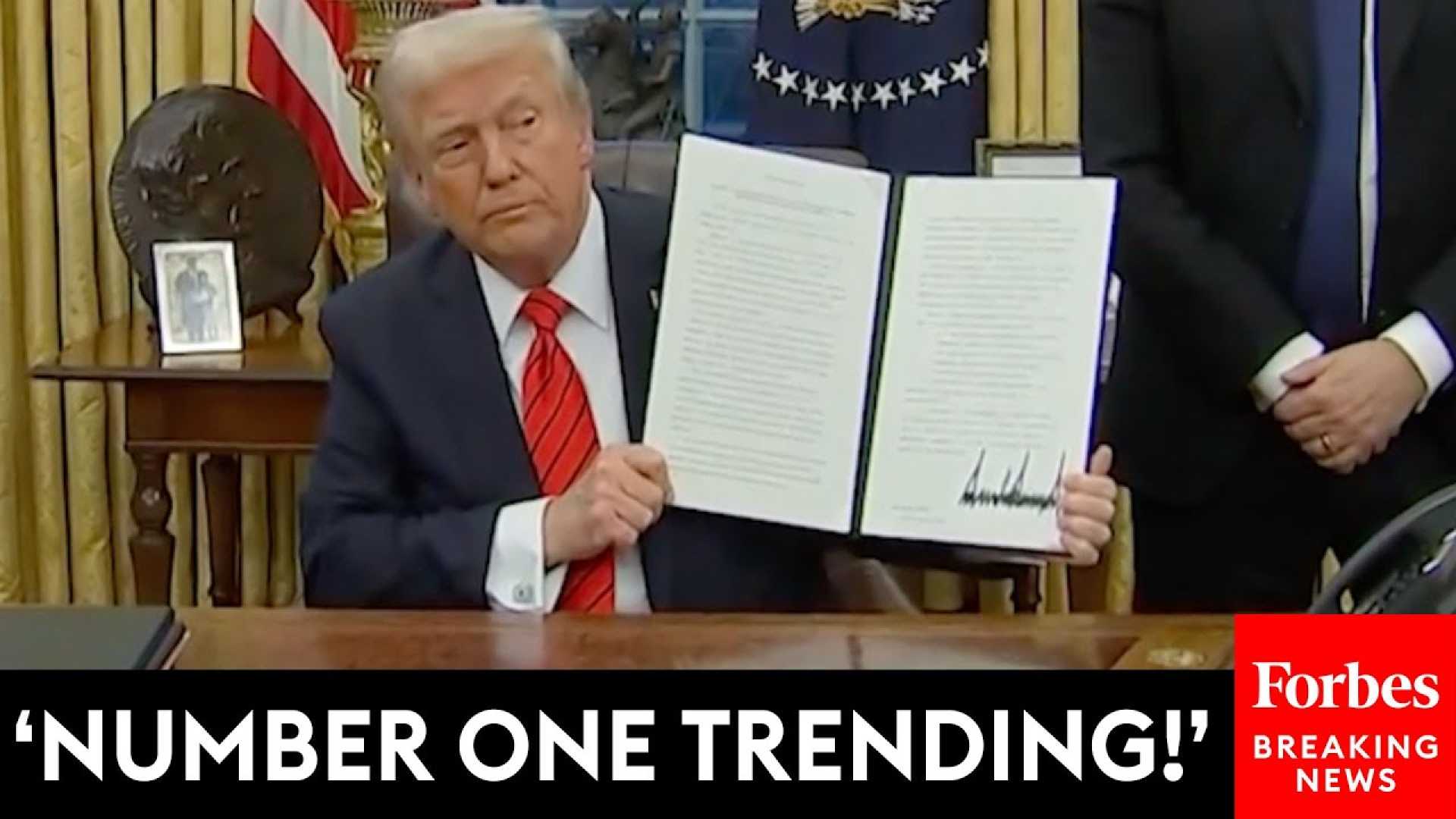Politics
Trump Reinstates Plastic Straws in Federal Buildings Amid Environmental Debate

NEW YORK, Feb. 14, 2025 — President Donald Trump has issued an executive order reinstating the use of plastic straws in federal buildings, reversing a Biden administration initiative aimed at reducing single-use plastics. This decision comes amid growing concerns about the effectiveness of paper straws and implications for environmental sustainability.
Each day, approximately half a billion straws are used across the United States, with the federal government as the largest purchaser. Straws are utilized in national parks, federal buildings, and embassies, prompting significant scrutiny over their environmental impact.
In a statement from the Oval Office on Monday, Trump criticized paper straws, claiming, “They don’t work. They break. They explode if something’s hot.” He emphasized that his administration would ensure that “paper straws are no longer provided” in federal agency buildings.
Many Americans resonate with Trump’s viewpoint; notably, comedian Jon Stewart acknowledged on “The Daily Show” that “he’s right on this one.” However, other industry leaders express concern that the focus on paper versus plastic oversimplifies a more complicated issue.
Ken Jacobus, CEO of Good Start Packaging—an eco-friendly food packaging company—argued “paper straws don’t work and they’re not a good solution.” He voiced disappointment over Trump’s executive order framing the debate primarily as a choice between paper and plastic when, he asserts, alternative biodegradable options exist.
Good Start Packaging produces biodegradable straws made from canola oil, claiming that these eco-friendly products can decompose in both land and ocean conditions. In stark contrast to the plastic straws now reinstated, these biodegradable alternatives are considered a more sustainable option.
Trump’s directive comes despite his previous support for environmental legislation aimed at combating plastic waste. In 2020, he signed the Save Our Seas 2.0 Act, which sought to increase awareness of marine debris.
Commenting further on the reinstatement, Trump remarked, “I don’t think plastic is going to affect a shark much as they’re munching their way through the ocean.”
Many major retailers have begun phasing out straws entirely. Starbucks, for example, eliminated plastic straws in 2020, providing compostable straws only upon request.
A December report from the Pew Research Center reveals that 75% of U.S. adults anticipate making sacrifices due to climate change. Jacobus noted, “More and more people are concerned about the environment, especially young people,” but reiterated that straws must remain functional.
Part of Trump’s executive order aims to lower costs for agencies, with paper straws priced between five to twelve cents each, compared to plastic straws costing less than two cents. Jacobus highlighted that biodegradable options from his company are competitively priced at about three cents each.
Jacobus further elaborated on the waste crisis, citing that less than 10% of plastic is recycled, leading to an economic imperative to shift manufacturing practices. “We’re running out of space for landfills,” Jacobus warned.
While paper straws are often perceived as a less toxic alternative, advocacy manager Jackie Nuñez from the Plastic Pollution Coalition discovered through testing that many low-quality paper straws contain toxic dyes and glues, mainly imported from China. She noted the presence of safer paper straws made in the U.S.
Jacobus and Nuñez advocate reusables as the optimal choice; however, they acknowledge the impracticality for large institutions. Nuñez emphasized that Trump’s order could open up the potential for increased dependency on disposable plastic products in federal facilities.
“Trump is now enabling federal properties to purchase Styrofoam, an old-school product… that is super toxic for the environment,” Jacobus remarked. “That’s what we should be focusing consumers on.”












